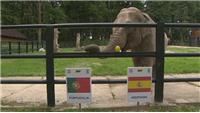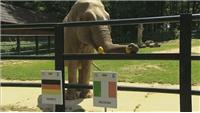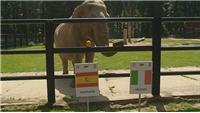
Gdańsk

Province: Pomerania
Population: 456,000
Area: 262km²
Motto: Neither rashly nor timidly
Gdańsk is a Polish city on the Baltic coast, at the centre of the country's fourth-largest metropolitan area.
The city lies on the southern edge of Gdańsk Bay (of the Baltic Sea), in a conurbation with the city of Gdynia, spa town of Sopot, and suburban communities, which together form a metropolitan area called the Tricity (Trojmiasto)
Gdańsk is Poland's principal seaport as well as the capital of the Pomeranian Voivodeship. It is also historically the largest city of the Kashubian region. The city is close to the former late medieval/modern boundary between West Slavic and Germanic lands and it has a complex political history with periods of Polish rule, periods of German rule, and extensive self-rule, with two spells as a free city. It has been part of modern Poland since 1945.
THINGS TO SEE
Most tourist attractions are in the Main Town along or near Ulica Długa (Long Street) and Długi Targ (Long Market), a pedestrian thoroughfare surrounded by buildings reconstructed in historical (primarily 17th century) style and bookended by elaborate city gates. This part of the city is sometimes referred to as the Royal Way as it was the former path of processions for visiting kings and those loathe to walk too far may be pleased to learn that Long is a bit of a misnomer – it is only 300m from start to finish.
The numerous churches include the 15th century St Mary's (Bazylika Mariacka), the largest brick church in the world. Behind Neptune's Fountain is the Artus Court, home to Europe's highest tiled stove (10.65m), while the waterfront boasts the biggest crane in Medieval Europe, the Gdańsk Crane. The museum ship SS Sołdek is anchored on the Motlawa river while in the northern outskirts, at the entrance to the shipyards, stands a monument to its revered workers.
Fan zone: Plac Zebrań Ludowych (People's Meeting Square)
Gdańsk's 30,000-capacity fan zone, located close to the bus and train stations, will centre on one giant 100m² screen and will open for the duration of the tournament from 12.00 to 01.00 local time on matchdays, 14.00 to 00.00 on non-matchdays. It is free to enter and will broadcast all 31 matches live, though at other times there will be plenty of entertainment such as football skill tests, five-a-side pitches, live concerts and DJ sets, as well as offer a full range of food and beverages.
TRANSPORT
To and from
Lech Wałęsa airport is 14km west of Gdańsk and has regular flights to Warsaw, Frankfurt, Munich and London, among others. Ferries run several times a week from the Nowy Port to Nynashamn, Stockholm while the PKS bus terminal has regular connections with Warsaw. The nearby Gdańsk Główny train station also has daily services with the Polish capital (4.5 hours), Wroclaw (7.5 hours) and Poznan (4 hours). Gdańsk is the starting point of the EuroVelo 9 cycle route which goes through the Czech Republic, Austria and Slovenia before ending at the Adriatic Sea in Pula, Croatia.
Distances to other UEFA EURO 2012 venues
Poznan – 305km Warsaw – 345km Wroclaw – 480km
Lviv – 725km Kyiv – 1,190km Kharkiv – 1,600km Donetsk – 1,810km
In and around
For getting around the city, a regular commuter train runs from Gdańsk Główny train station to Gdynia Główna and there are trams and buses to local stops.
PGE Arena Gdańsk

The venue's striking exterior resembles amber, which has long been extracted along the Baltic coast.
UEFA Capacity: 40,000
Record attendance: 34,444 (KS Lechia Gdańsk 1-1 MKS Cracovia Kraków on 14/08/2011)
Opened: July 2011
Located in Gdańsk's Letnica neighbourhood, the venue is situated in the middle of a triangle formed by the Old Town, the famous shipyards and the airport.
The curved 45,000m2 exterior consists of 18,000 plates designed to resemble amber, which has long been extracted along the Baltic coast.
The multi-functional venue, which took two and a half years to construct, includes a hotel and roller skating circuit.
Lechia have been playing at the venue since the start of 2011/12, the stadium replacing their former 12,000-capacity home in the district of Aniolki.
On 6 September 2011 the Arena Gdańsk hosted its first international game, and Poland were on the brink of their first ever win against Germany when Cacau's added-time goal earned the visitors a 2-2 draw.
Hot News
- Funny Balotelli!
- Spanish fans celebrate Euro Cup win
- That's German WAGS!
- The sexy female fans in Euro 2012
- Euro 2012: Spain fans celebrate victory
- Spain vs Italy in clash of the Euro WAGs
- Euro 2012 Final - Spain 4 : 0 Italy, Part 2
- Germany knocked out by Italy
- Natalia Siwiec blasts Sol and the BBC
- Coleen Rooney reveals her bikini body secrets
- Italy's fans celebrated wildly
- Euro 2012 Final - Spain 4 : 0 Italy, Part 1
| Rank | Team | W/D/L | Pts |
|---|
Cities & Stadiums
The Top 3 Teams of Previous Tournaments
| Year | Winners | Runner-up | Third place |
|---|---|---|---|
| 2008 | Spain | Germany | Russia / Turkey |
| 2004 | Greece | Portugal | Netherlands / Czech Republic |
| 2000 | France | Italy | Netherlands / Portugal |
| 1996 | Germany | Czech Republic | France / England |
| 1992 | Denmark | Germany | Netherlands / Sweden |
| 1988 | Netherlands | Soviet Union | Italy / West Germany |
| 1984 | France | Spain | Denmark / Portugal |
| 1980 | West Germany | Belgium | Czechoslovakia |
| 1976 | Czechoslovakia | West Germany | Netherlands |
| 1972 | West Germany | Soviet Union | Belgium |
| 1968 | Italy | Yugoslavia | England |
| 1964 | Spain | Soviet Union | Hungary |
| 1960 | Soviet Union | Yugoslavia | Czechoslovakia |



